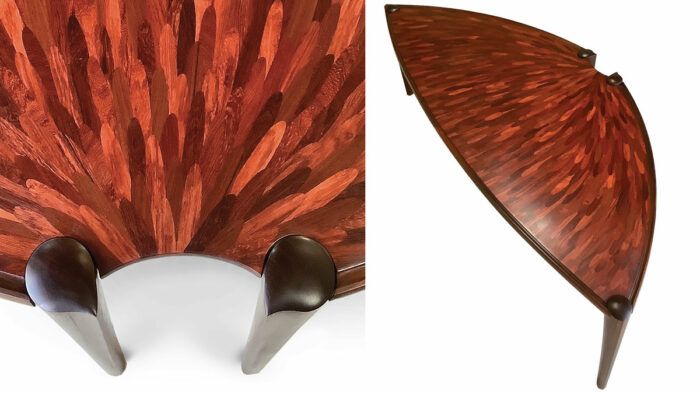
[ad_1]
Synopsis: All you could create this intricate feather sample is a trim router with straight bit and information bushing, a shopmade template-routing jig, and plenty of repetition. A LOT of repetition, however the outcomes are beautiful.
The method I take advantage of to make this feather veneer advanced out of necessity and the necessity for effectivity. For years I made summary marquetry patterns for small tabletops, together with a feather sample. A scrollsaw served the aim completely. I used the double-bevel reducing methodology to piece collectively the complete sheet of veneer, and I used to be in a position to cowl an entire floor utilizing the smallest of scrap veneers.
Nonetheless, the general measurement of the floor sheet is restricted by the throat depth of the scrollsaw, as a result of to bevel minimize a single feather into an ever-larger sheet, the sheet have to be rotated 180° throughout the minimize. And swinging round a fragile sheet of veneer is a dangerous operation anyway.
In making a eating desk with the feather sample, I needed to rule out utilizing the scrollsaw as a result of the highest was to be 3 ft. by 6 ft. I wanted to seek out one other approach, so I got here up with this router-template jig. My approach works with any form. As soon as I made the jig, I had plenty of meditative, repetitive work forward of me, however the closing product was well worth the effort.
Easy methodology, beautiful outcomes
All that’s required is a trim router with a straight bit, a information bushing with a detachable collar, and a shopmade template-routing jig. You will want plenty of feathers. Making them is a straightforward course of that you’ll repeat endlessly, however the result’s value it. Routing the recesses for the feathers is finished with the identical template.
Feather manufacturing, no collar
To chop the feathers out of the clean, use a trim router with an inlay bushing and bit, with out the detachable collar put in. Mount the feather clean within the routing template jig, rout, and take away.
Feather recesses, add the collar
To create the recesses for the feathers, add the collar to the bushing, place the identical routing template used to make the feather clean on the inlay sheet you’re creating, and rout the recess.
Feather set up
Dot some CA gel glue across the fringe of the feather, place it within the recess, and press it into place, holding it for 20 seconds to set.
The way it works
A information bushing with a detachable collar is the little factor that makes this all occur, together with a trim router, ideally one with a regular sub-base gap of 1-3/16 in., which is able to match the inlay jig with out modification. The jig requires a 1/8-in. spiral router bit. The diameter of the bit and the thickness of the collar should be the identical. The 1/8-in. bit and the information bushing with a detachable 1/8-in.-thick collar are sometimes offered as an inlay package. You will get them on-line or at woodworking-supply shops. (Merchandise no. 27593 at rockler.com is one instance.)
The system is designed to do true inlay, which includes excavating a recess in a stable background after which inserting inlay veneer. Each the recess and the inlay are minimize utilizing the identical shopmade template. My methodology is a variation on this method. I take advantage of all veneer, however quite than inlaying into a stable background, I create the background as I am going alongside, excavating and rebuilding on itself as I transfer outward. I inlay a full feather after which rout away about half of it for the subsequent feather, repeating till I’ve a sheet of veneer.
Whiteside 9500 Strong Brass Router Inlay Router Bit Set
Set consists of stable carbide down-cut spiral bit (for chip-free reducing), quick-change bushing, template information and full directions. Matches Porter-Cable, Black & Decker and any router with a Porter-Cable bushing adapter.
Value: $65.99 on the time of writing
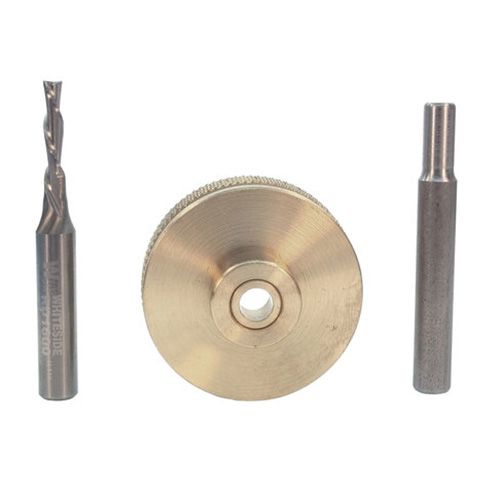
One template does double responsibility
You’ll use the identical template to create the feathers and minimize the recesses that maintain them. What makes the distinction, and the proper match, is the information bushing’s detachable collar. With out the collar, you narrow the feather; with the collar, you narrow the recess. If you’d like different-size feathers, you make a number of templates. Newell makes use of three to 4 totally different templates for every design.
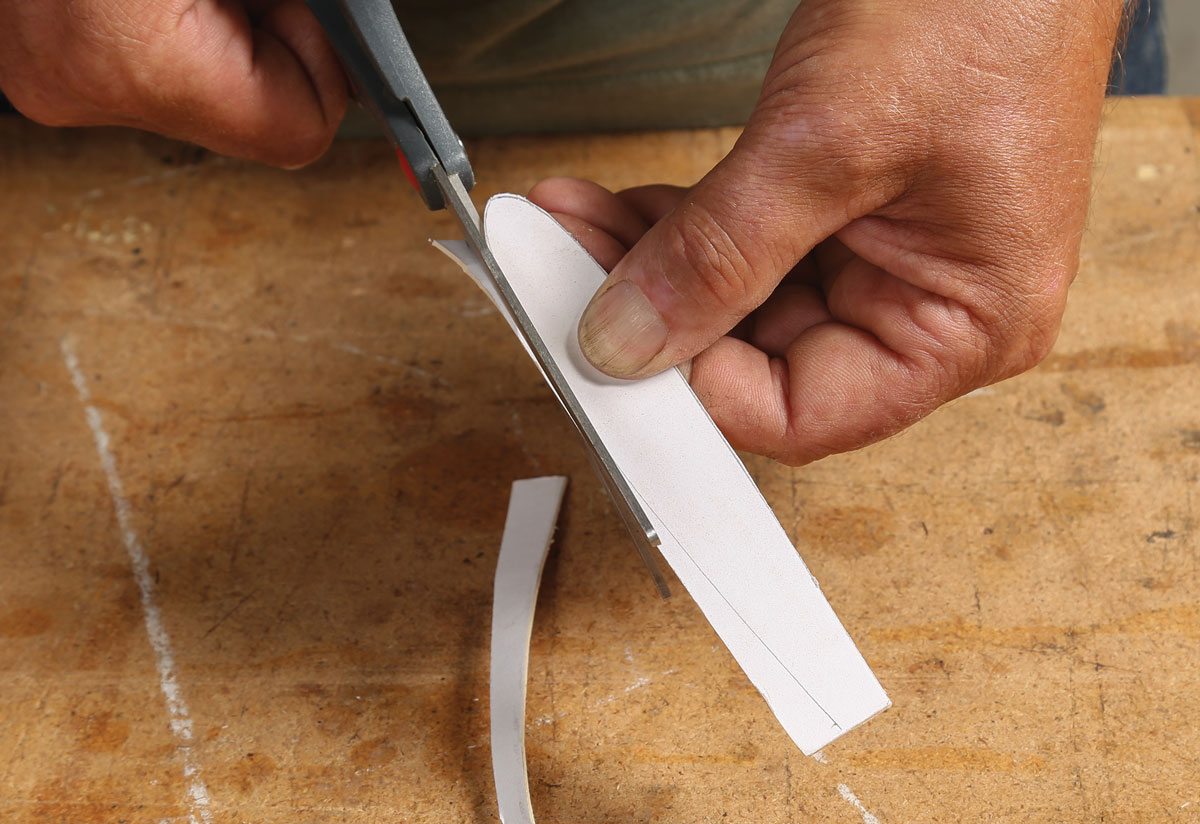
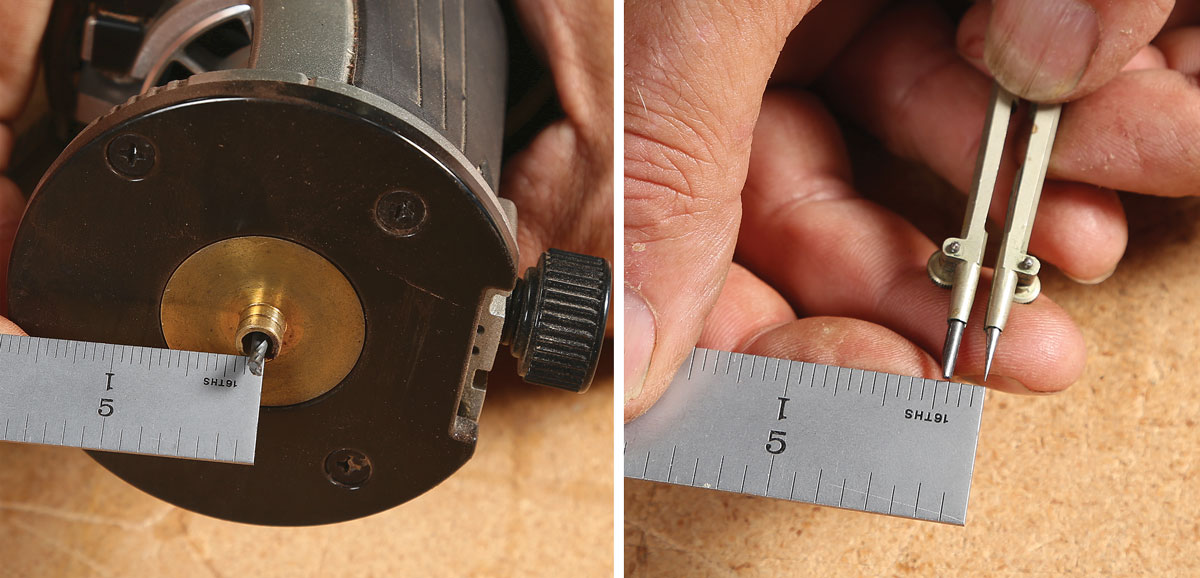
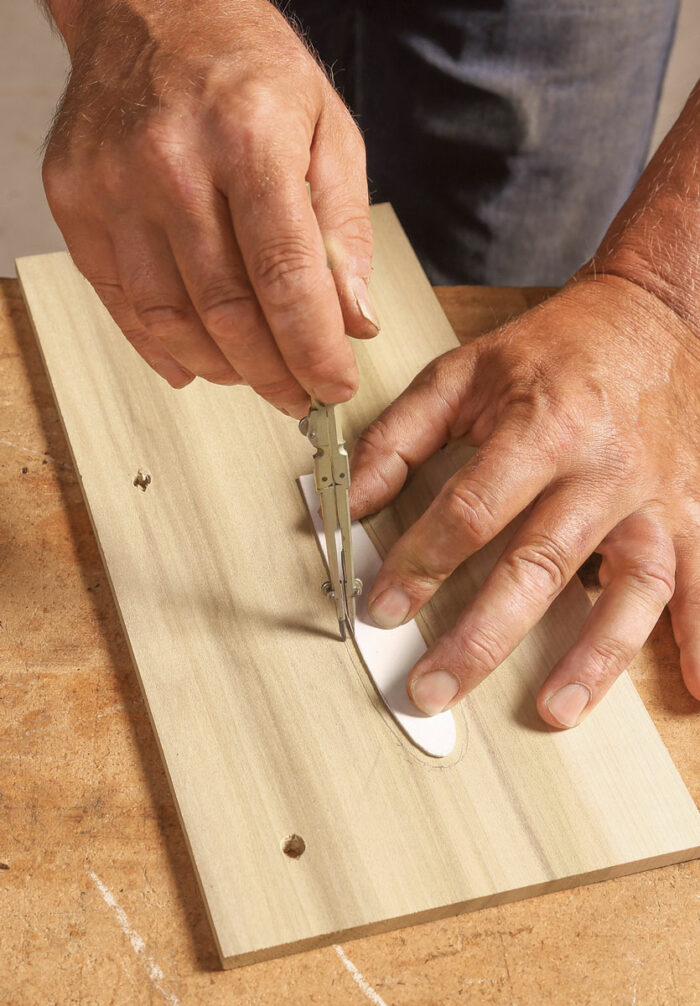
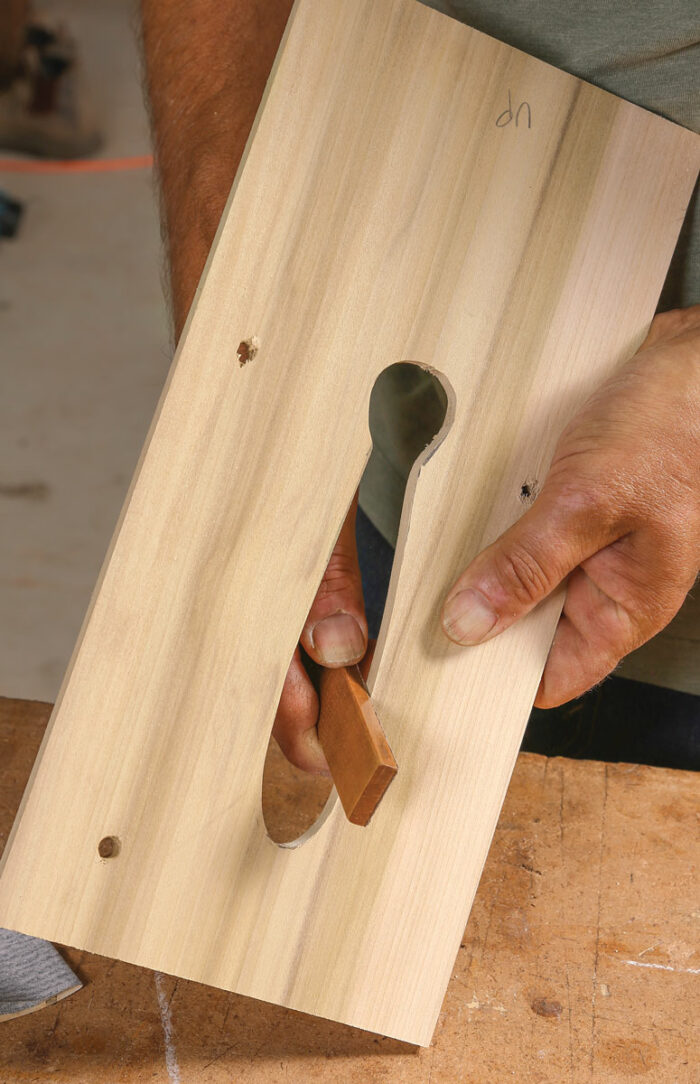
Get going with a starter row
To start, I want a row of small items that I minimize and edge-glue to make the primary stretch of background into which the feathers will probably be inlaid.
Then I minimize an entire bunch of rectangular feather blanks and transfer on to the inlay course of, which begins with the scrollsaw as a result of the elements are small and skinny; extra importantly, there’s barely any kerf to consider, and the nice enamel make very clear cuts. Utilizing small scraps of shopsawn veneer (1⁄32 to three/64 in. thick), I glue one piece on high of the opposite. With rosewood at the least, this glue units immediately and holds very agency. The cyanoacrylate (CA) gel glue I take advantage of might not work on all woods. It doesn’t stick properly to oak, which can be due to the tannins, however I haven’t had bother with some other species.
With a nice scrollsaw blade, I minimize alongside the road after which cut up off the waste. The scrollsaw desk is at 90° as a result of this isn’t beveled inlay. What’s left is a joint that matches properly. I edge-glue the 2 items collectively and transfer on to the subsequent.

Brian Newell builds furnishings in Fort Bragg, Calif.
To view the complete article, please click on the View PDF button under.
From High quality Woodworking #302
Makita Trim Router
Materials: Alloy Metal
Merchandise Dimensions LxWxH: 10 x 8 x 6 inches
Voltage: 120 Volts
Merchandise Weight: 3.9 Kilos
Horsepower: 1.25
Most Rotational Velocity: 30000 RPM
Amperage: 6.5 Amps
Value: $124.00 on the time of writing
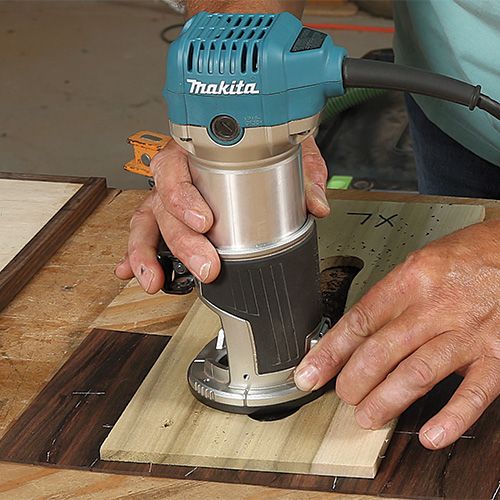
Join eletters right now and get the newest methods and how-to from High quality Woodworking, plus particular provides.
Obtain FREE PDF
while you enter your electronic mail tackle under.
[ad_2]
